Golisi O2 Smart charger
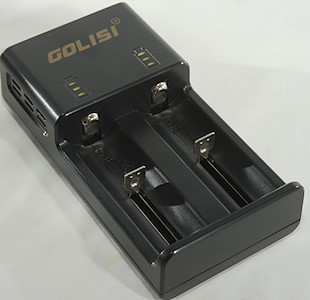
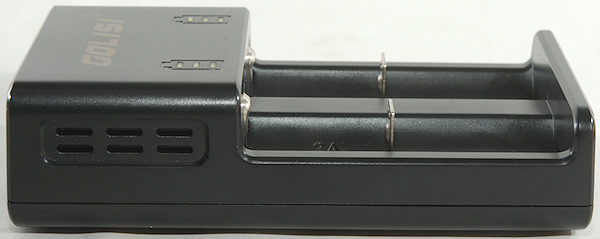
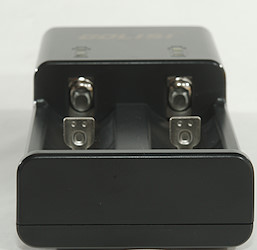
A simple 2 channel universal charger from Golisi.
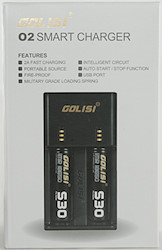

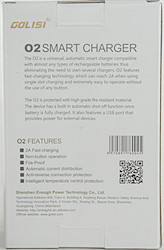

It arrived in a cardboard box, with some specifications on.
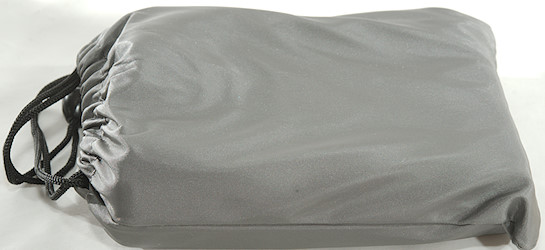
Inside the box the charger was in a pouch.
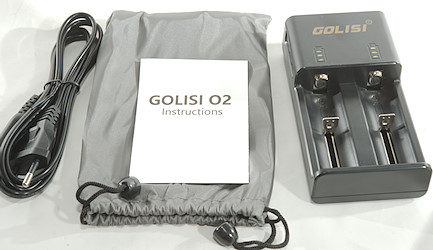
The box included the charger, a mains cable, a pouch and the instruction sheet.
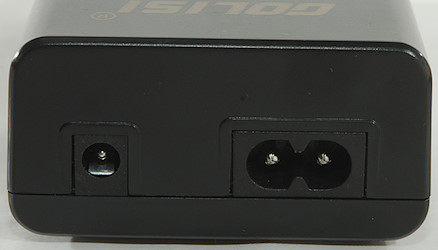
The charger has universal mains (110-240VAC 50/60Hz) and a 12V input on the back.
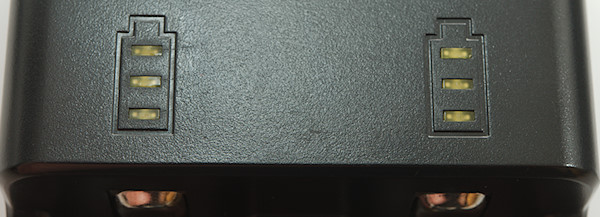
The user interface is two bars of 3 leds showing the charge state. When charging one led will flash and all will be lit steady when batteries are full.
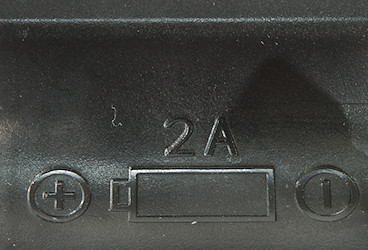
One slot is rated for 2A charge current, the other for 1A.
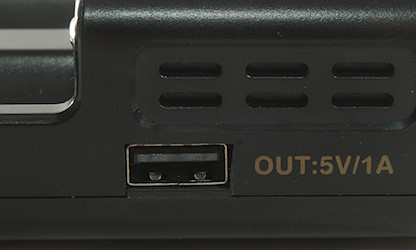
The charger do also support power bank function.
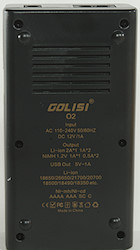
On the bottom of the charger there are specifications.
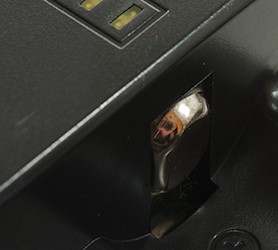
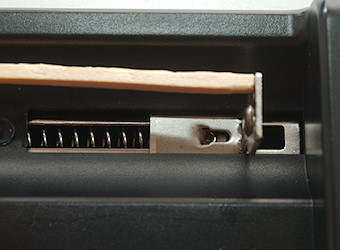
The slots uses the classical slider construction and it works fine.
The slots can work from 32mm to 70.5mm. This covers unprotected batteries, but some protected will be too long.
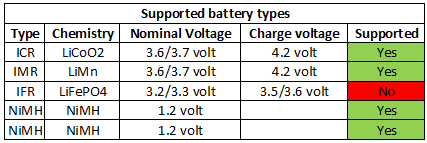
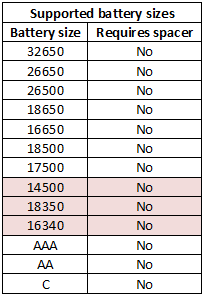
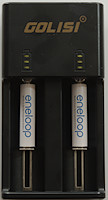
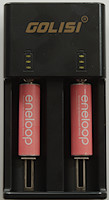
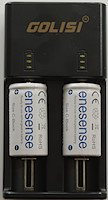
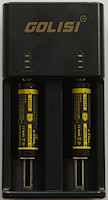
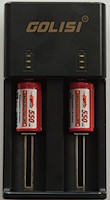
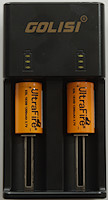
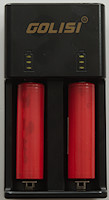
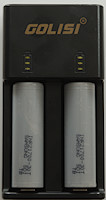
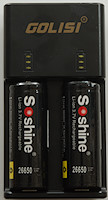
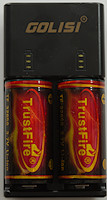
The charger can handle 70 mm long batteries including flat top cells.
The charge current for 1 cell is 1A when using #2 slot or both slots, this is rather high for small cells.
Measurements
- Discharge LiIon battery with 2mA when not connected to power.
- When power is connected with a full battery, it will charge with about 0.6mA.
- Below 1.5V the charger will assume NiMH
- Above 2.5V the charger will assume LiIon.
- A slot with a battery will not increase current when other slot is finished (Good).
- A single LiIon in is charged at 2A in slot #1.
- Two LiIon is charged at 1A
- A single NiMH is charged at 1A in slot #1.
- Two NiMH is charged at 0.5A
- Charger will not restart when voltage drops.
- It will restart charging on reinsertion of the battery or power cycling.
- Power consumption when idle without battery is 0.18 watt.
Charging LiIon
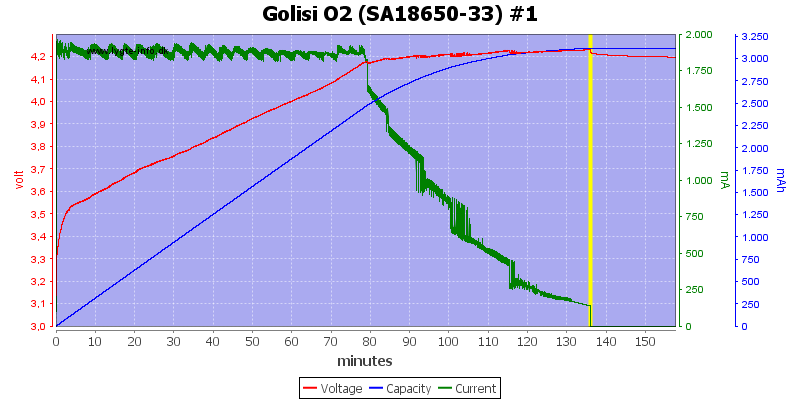
Slot #1 will charge with 2A when it is the only used slot. The curve is a CC/CV with about 140mA termination.
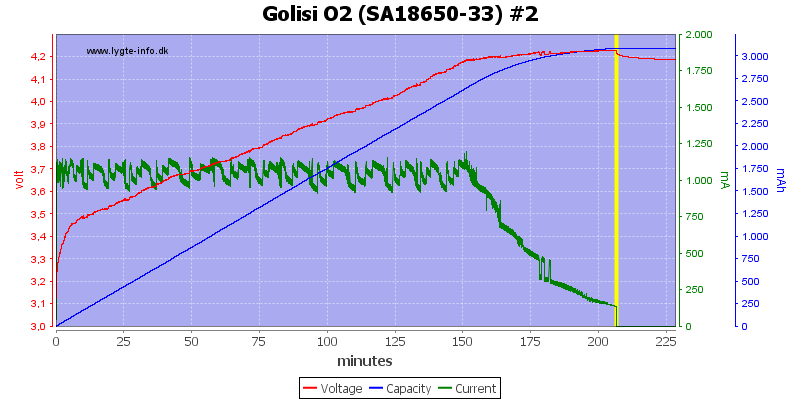
Slot #2 is always 1A and also with a CC/CV charge curve and 140mA termination.
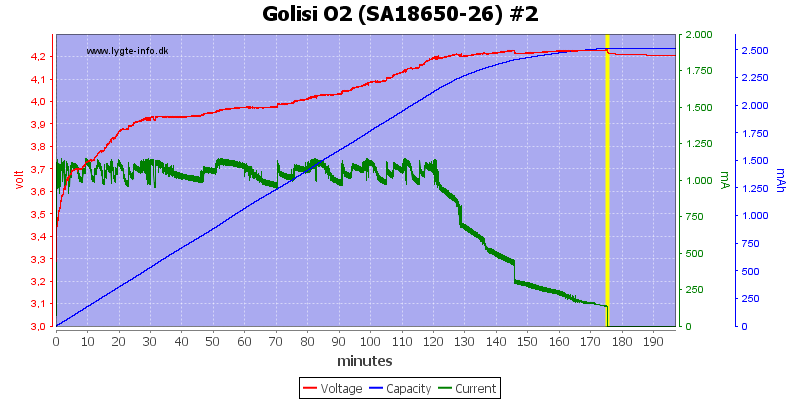
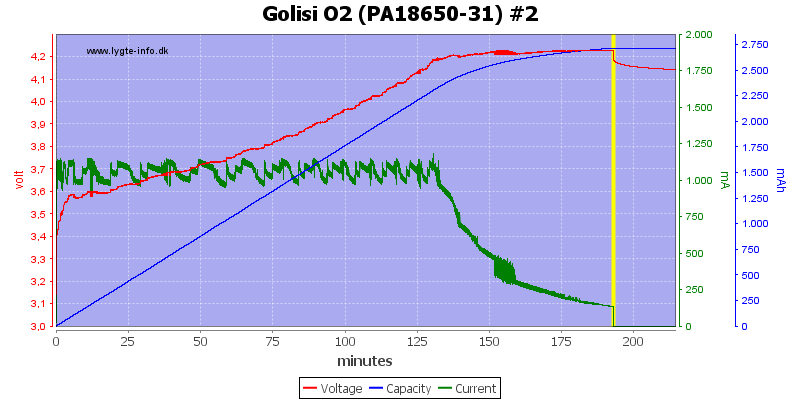
These two cells looks fine.
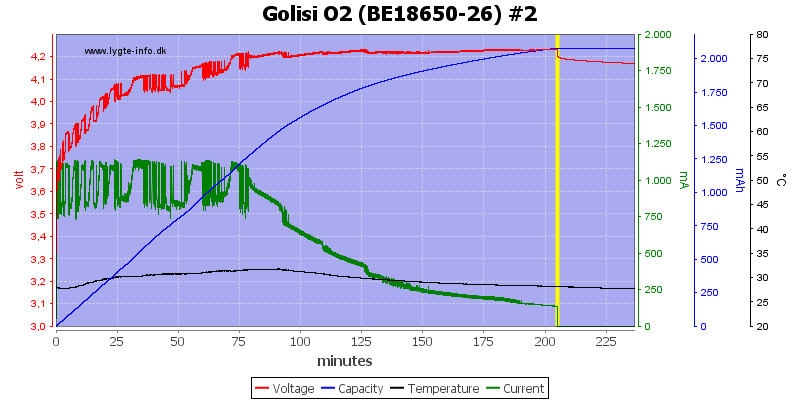
I wonder why the current jumps up and down on this cell, I tried twice and the curve looks similar. It do not prevent the charger from charging the cell in a reasonable way.
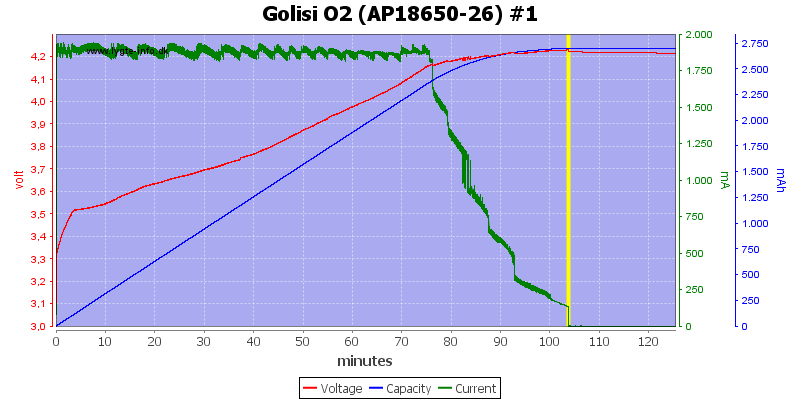
This high current cell is charged fairly fast in the 2A slot.
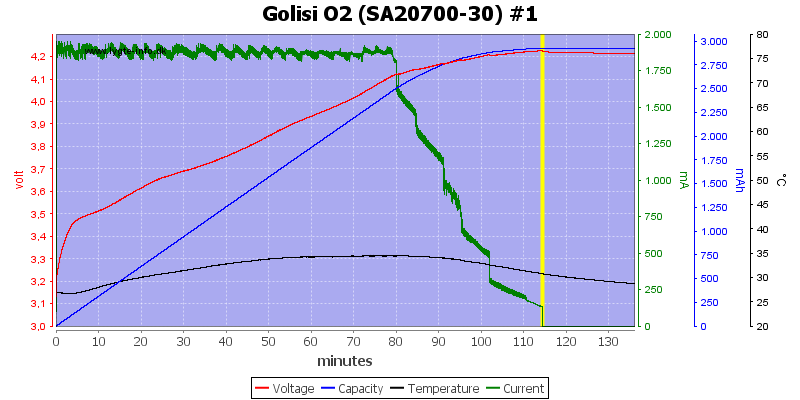
The same with this larger cell.
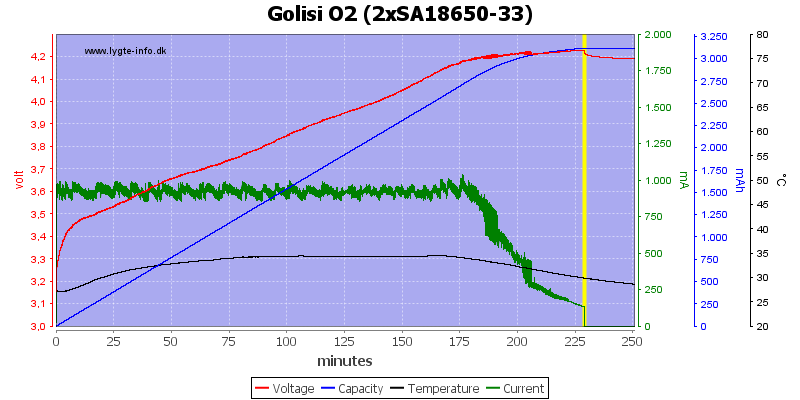
With two cells in the charger the current is reduced to 1A for both slots.
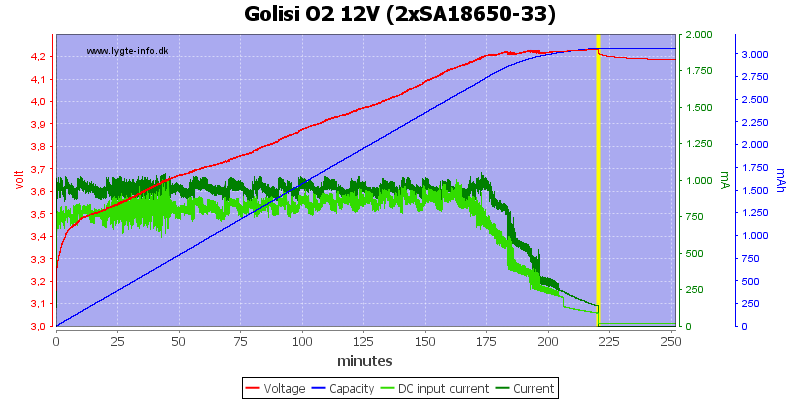
When powered from 12V it needs about 1A to charge two cells.
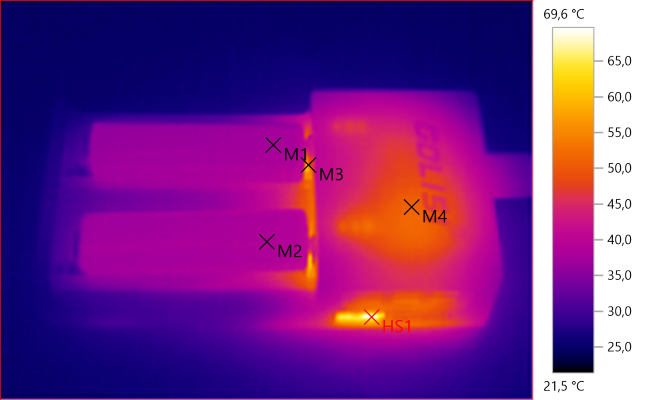
M1: 37.7°C, M2: 38.6°C, M3: 54.1°C, M4: 51.5°C, HS1: 69.6°C
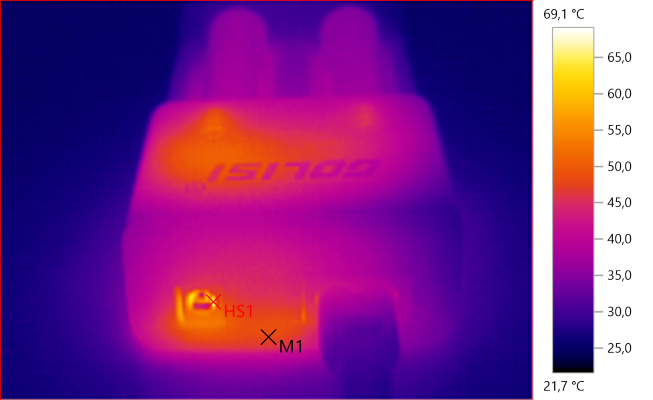
M1: 48.0°C, HS1: 69.1°C
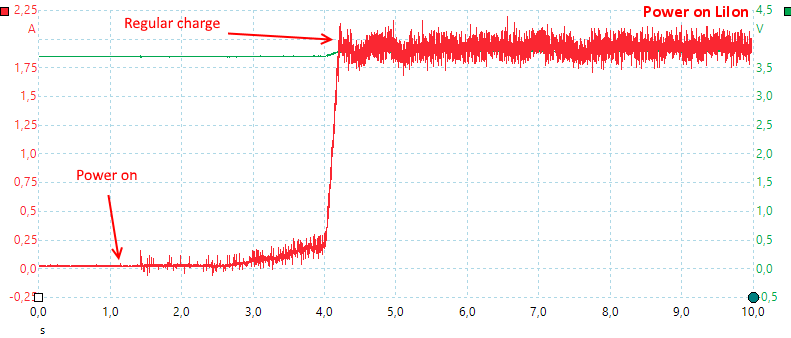
The charger needs about 3 seconds to start.
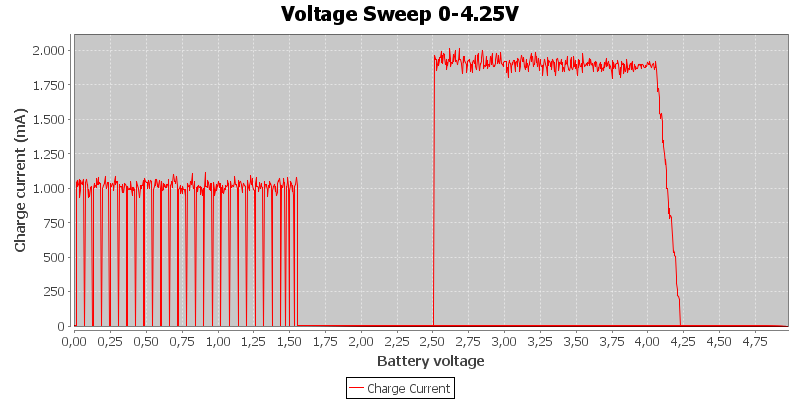
The charging profile with both NiMH and LiIon charging for slot #1.
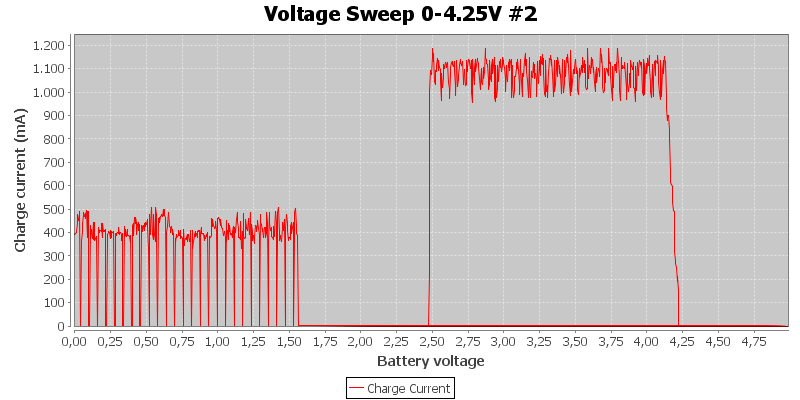
Slot #2 is similar, but at half the current.
Charging NiMH
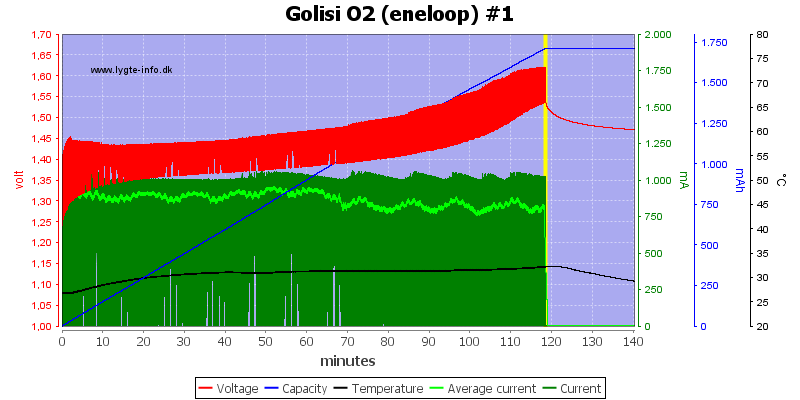
The charger chargers with 1A and uses voltage termination on this cell, but without any top-off charging.
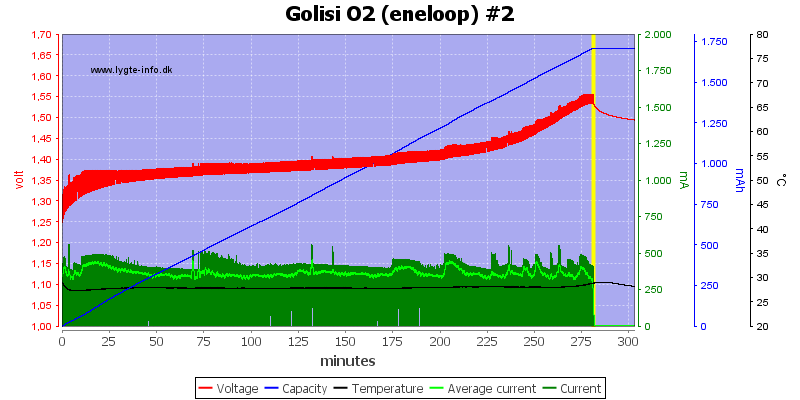
In slot #2 the current is 0.5A and the termination also looks to be on voltage.
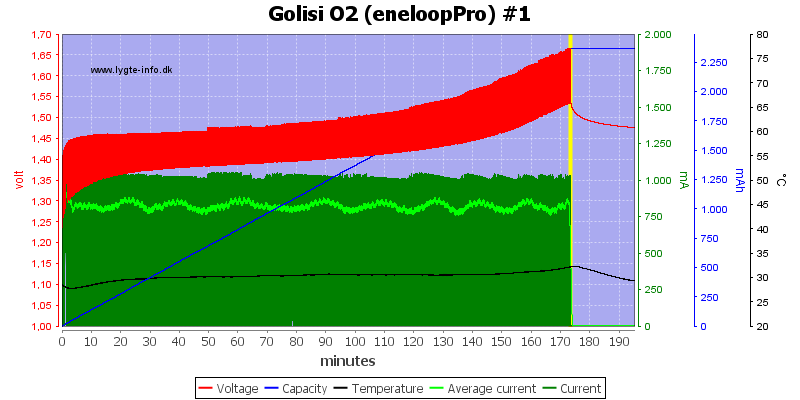
The same with the larger cell.
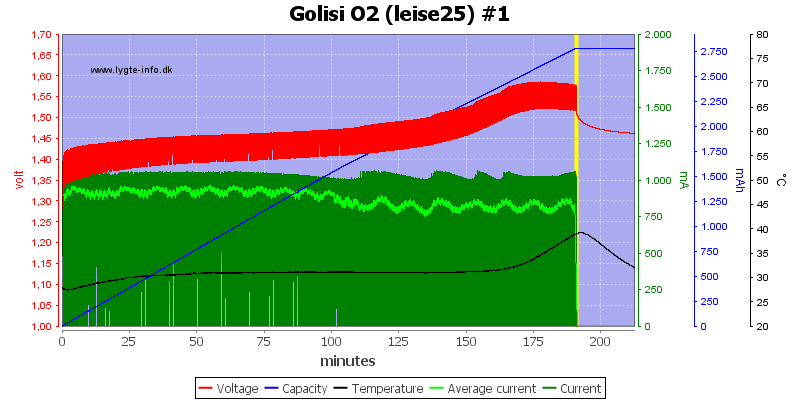
This cell has lower voltage and termination is on -dv/dt.
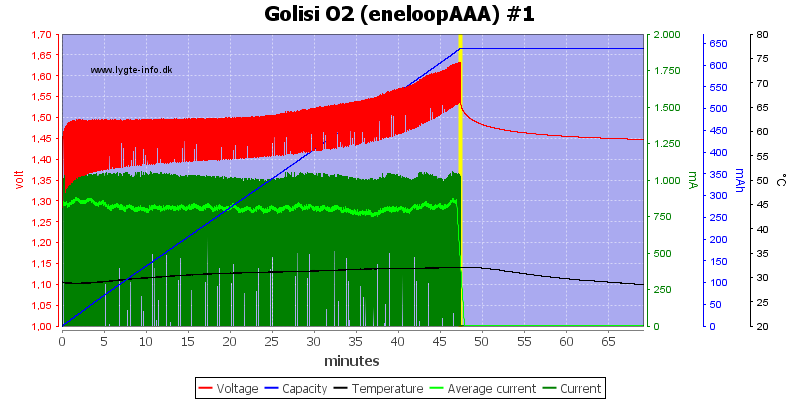
Again voltage termination.
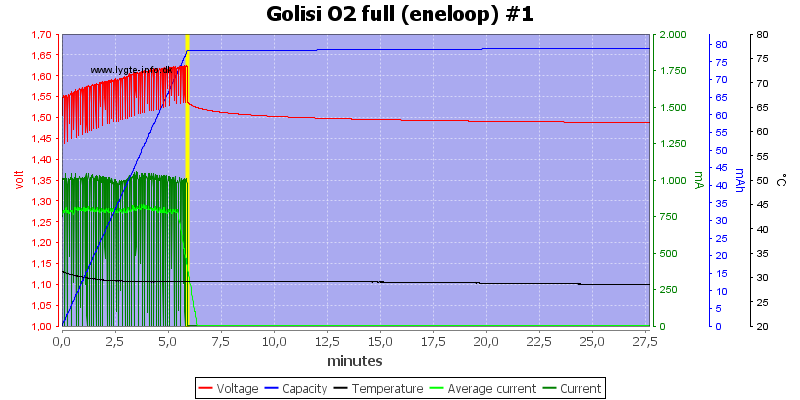
The full eneloop is detected in about 6 minutes.
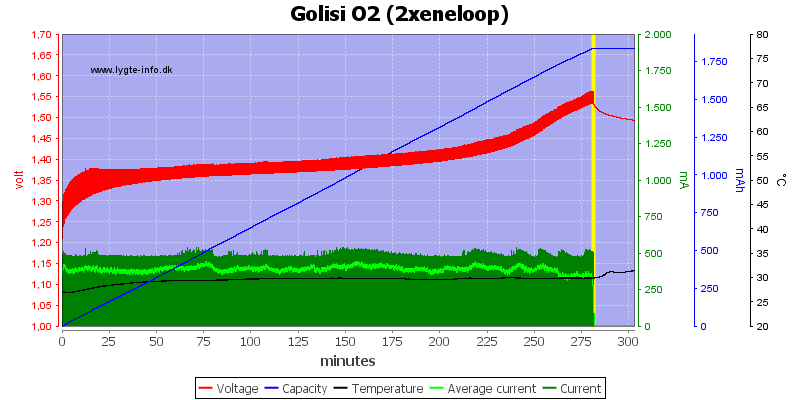
With two NiMH cells in the charger the current is 0.5A for each.
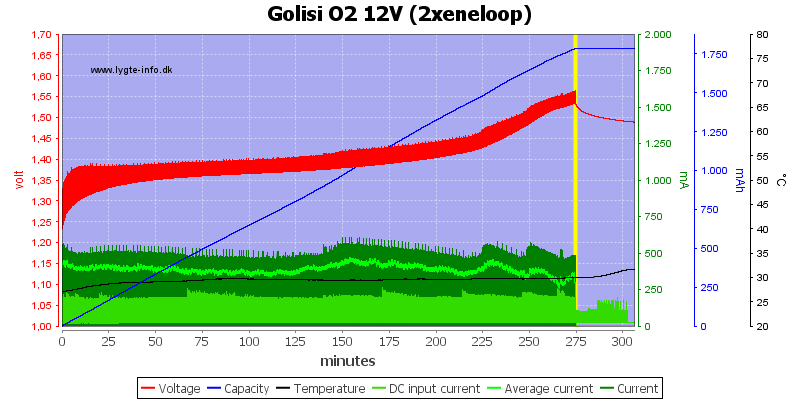
The charger needs about 0.2A from 12V to charge two NiMH.
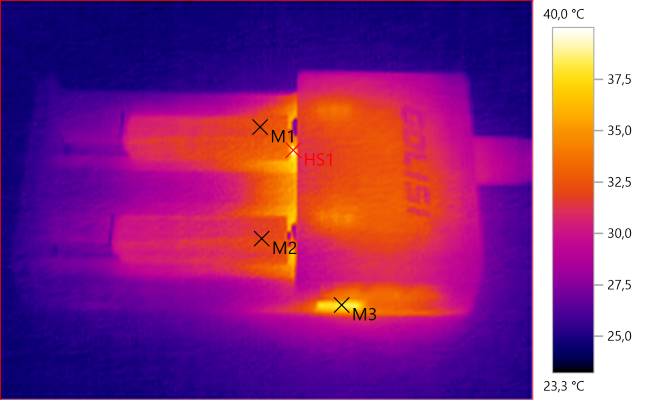
M1: 32.2°C, M2: 31.6°C, M3: 38.0°C, HS1: 40.0°C
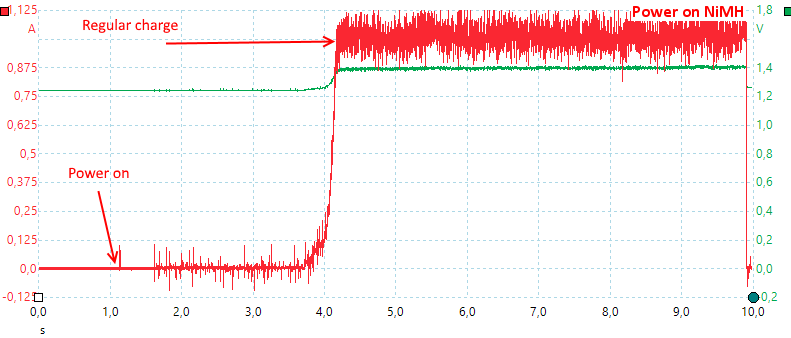
NiMH needs about 3 seconds to start.
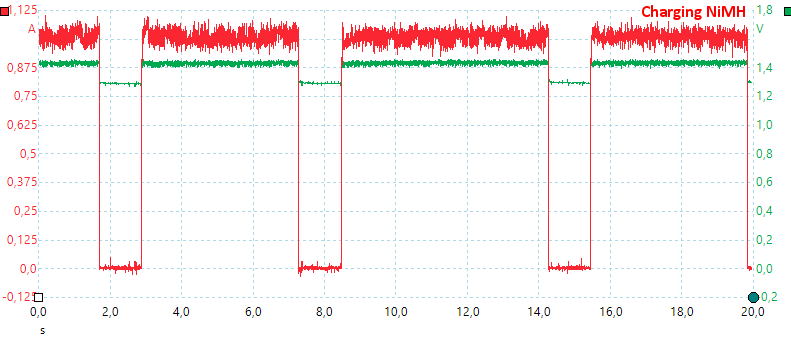
As usual NiMH charging will check the voltage with current turned off.
USB output
- Discharge LiIon battery with 2mA when not connected to power.
- Usb output will not drain batteries below 3V (Current draw is below 1.5mA)
- USB output is coded as DCP
- USB output is on even with a very small load on usb output.
- USB output will drain the batteries to 3V .
- USB output turns off when charger is powered.
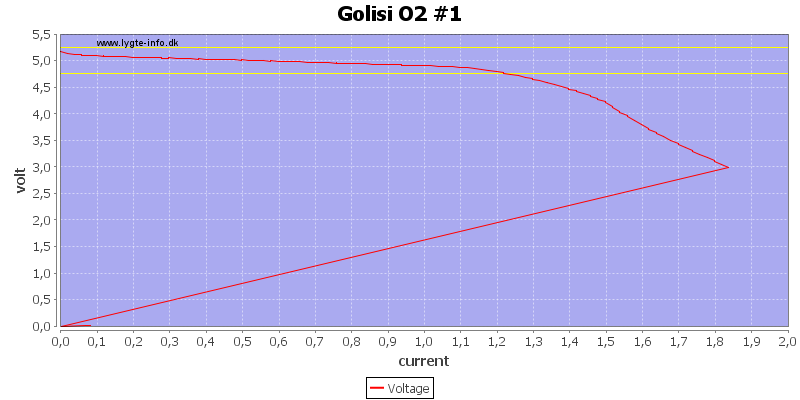
The USB output can deliver 1A before it starts to drop, but there is no real overload protection.
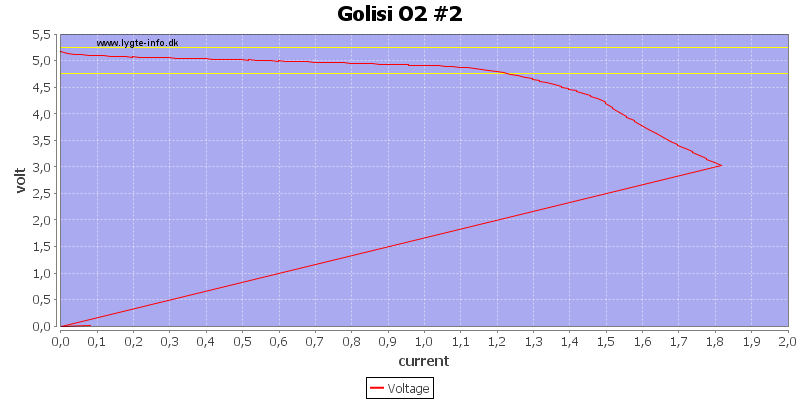
Using #2 slot to power the usb is the same.
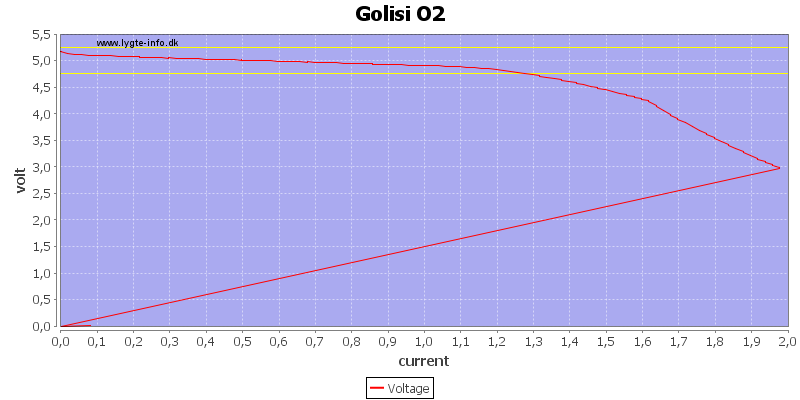
And also with both slots at the same time.
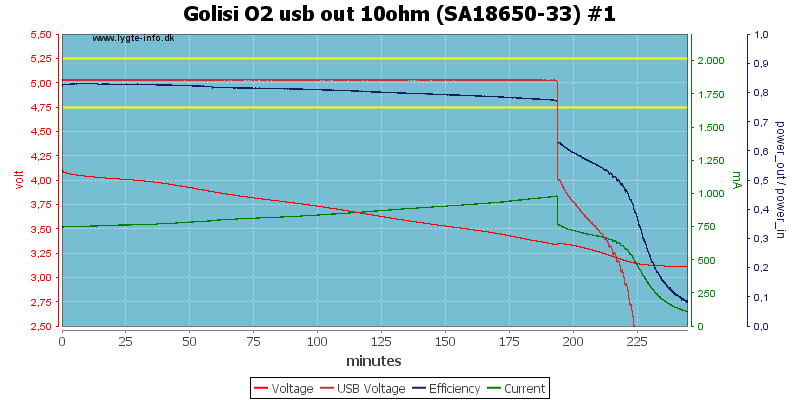
With 0.5A load the output is stable for about 3 hours, then it drops some, but do not turn off. The usb output will run for a long time with nearly no output voltage, instead of just turning off. Battery will not be discharge below 3V, but to 3V.
The USB output makes a weak high frequency audible sound, especially when the batteries are low.
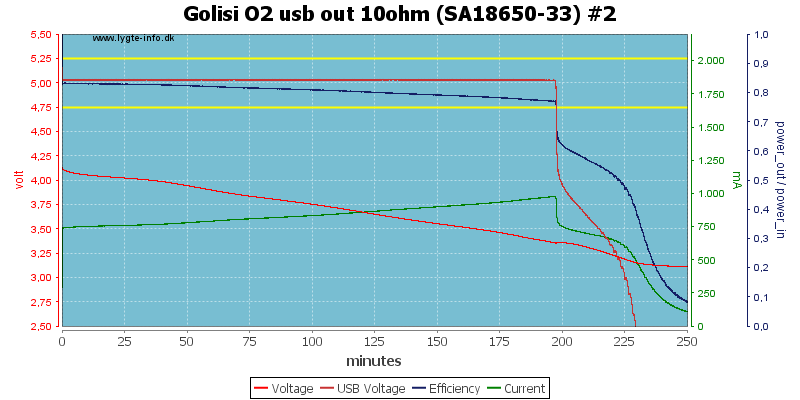
Using slot #2 works the same way.
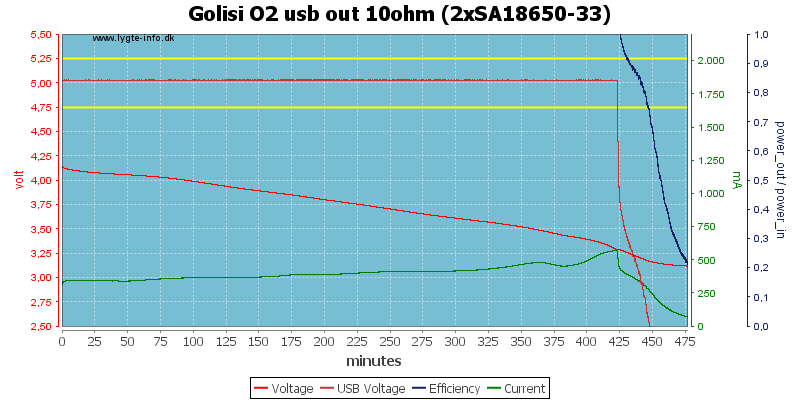
With both slots the time is doubled.
Note: The efficiency curve is wrong because I only measure on one battery.
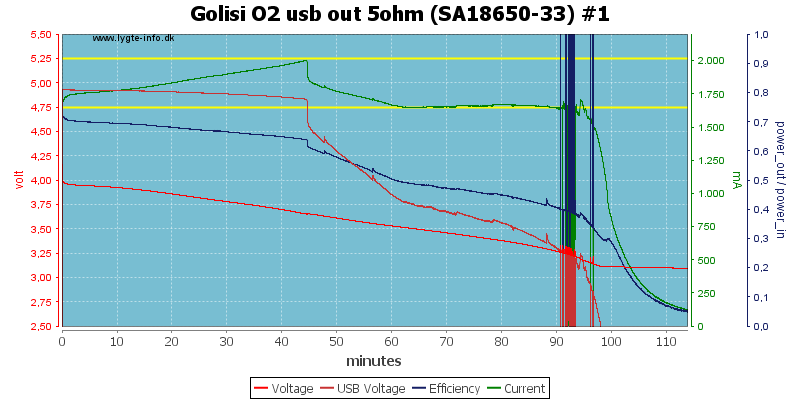
At 1A output current it drops earlier.

The output is nicer with two batteries, but it will drain the battery to 3V.
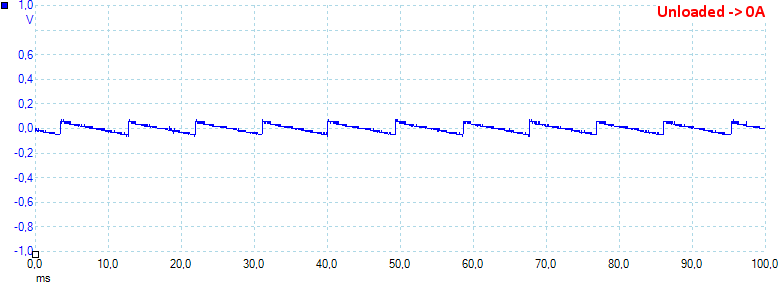
With no load the output goes a bit up and down, the noise is 35mV rms and 437mVpp.
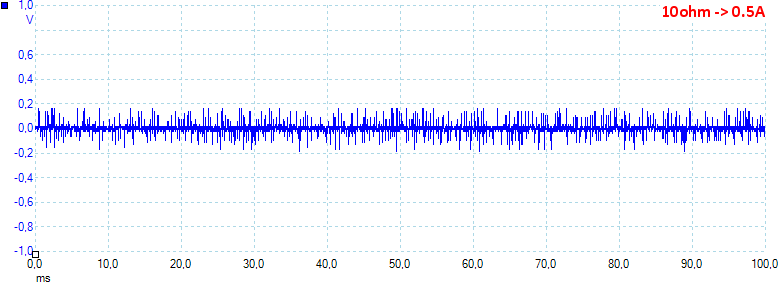
At 0.5A the noise is 35mV rms and 432mVpp.
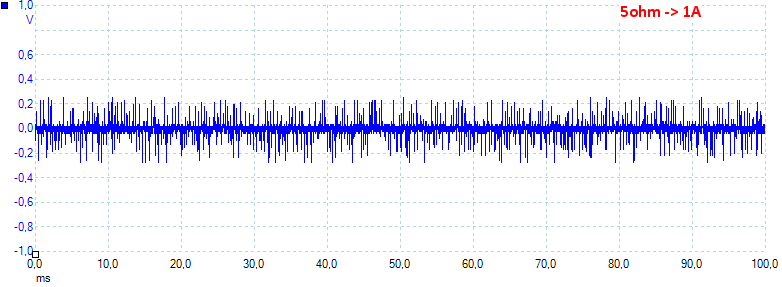
At 1A the noise is 58mV rms and 701mVpp.
Testing with 2830 volt and 4242 volt between mains and low volt side, did not show any safety problems.
Conclusion
This charger is very simple to use, you just have to put the batteries in, this also means that current selection is fairly limited. With LiIon you can select between 1A and 2A for a single cell, depending on slot. With 1A being the minimum LiIon current this means the charger is bad for small cells.
The usb output works fine with two batteries in the charger, but has problems with full current on one battery, but I do not like the way it drains the batteries to 3V, it would be nicer if it turned off and stayed off first time the output got too low.
I will rate it as a good and simple charger, but the usb output could be better.
Notes
The charger was supplied by Golisi for review.
Here is an explanation on how I did the above charge curves: How do I test a charger































































